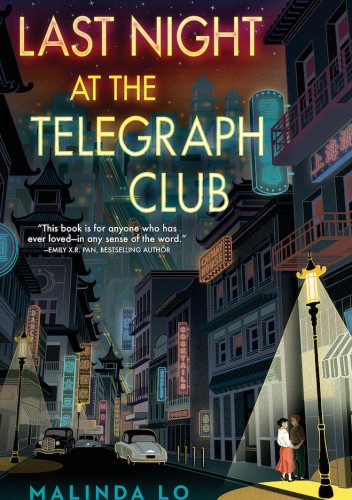

Her noticing the picture of Tommy Andrews is the catalyst of the plot, and we can see through her 3rd person narration that she’s noticing the clothes women wear, or the way Kath’s hands feel in hers. Sorry for that confusing sentence, I’ll clarify: from the beginning of the book, Lily is noticing things that her friends might not. I loved a whole lot about this book, but I want to focus on a few things in particular I thought were really good: Lily’s journey of self-discovery, a realistic coming-out story, and great historical details that made me want to learn more.īook Twitter has joked about the amount of ‘noticing’ that happens in this book, but it’s important: Lily’s self-discovery is about noticing things, and noticing what she notices. Would Lily like to go there with Kath, sometime, maybe? Over her senior year of high school, Lily discovers who she is, who she loves, and what her life might look like, against a backdrop of Communist anxiety amid post-war prosperity. In this light, Last Night at the Telegraph Club, by Malinda Lo, might be my new standard to judge coming out books by.Ī quick blurb: In 1950s Chinatown, Chinese-American teenager Lily Hu is captivated by a newspaper ad for male impersonator Tommy Andrews, who performs at the Telegraph Club, but would likely never do anything about it- until she discovers her classmate, Kath, has been to the Telegraph Club before. To me, that means telling a story more about the character’s exploration of their own identity, rather than how it relates to people around them like their family or friends (although this will always be a part of it). With that in mind, I’ve been looking for books that handle this well.

What I’ve been realizing, though, is that queer fiction set in our world is almost always going to have some component of coming out or identity exploration to it, because queer lives in our world almost always do as well.

The author has license to make up a world where who the main character loves is not an issue. I’ve seen this most in fantasy, in books like Crier’s War by Nina Varela or Gideon the Ninth by Tamsyn Muir. Lately, I’ve been more into stories where the sexuality of the main character is central to the book, but not at all central to the book’s conflict. Coming out stories are important and powerful, but in some ways they’ve been obscuring other aspects of the lives of queer people.

I don’t want to speak for anyone but myself, but I don’t have much interest in coming out stories in my queer YA.


 0 kommentar(er)
0 kommentar(er)
